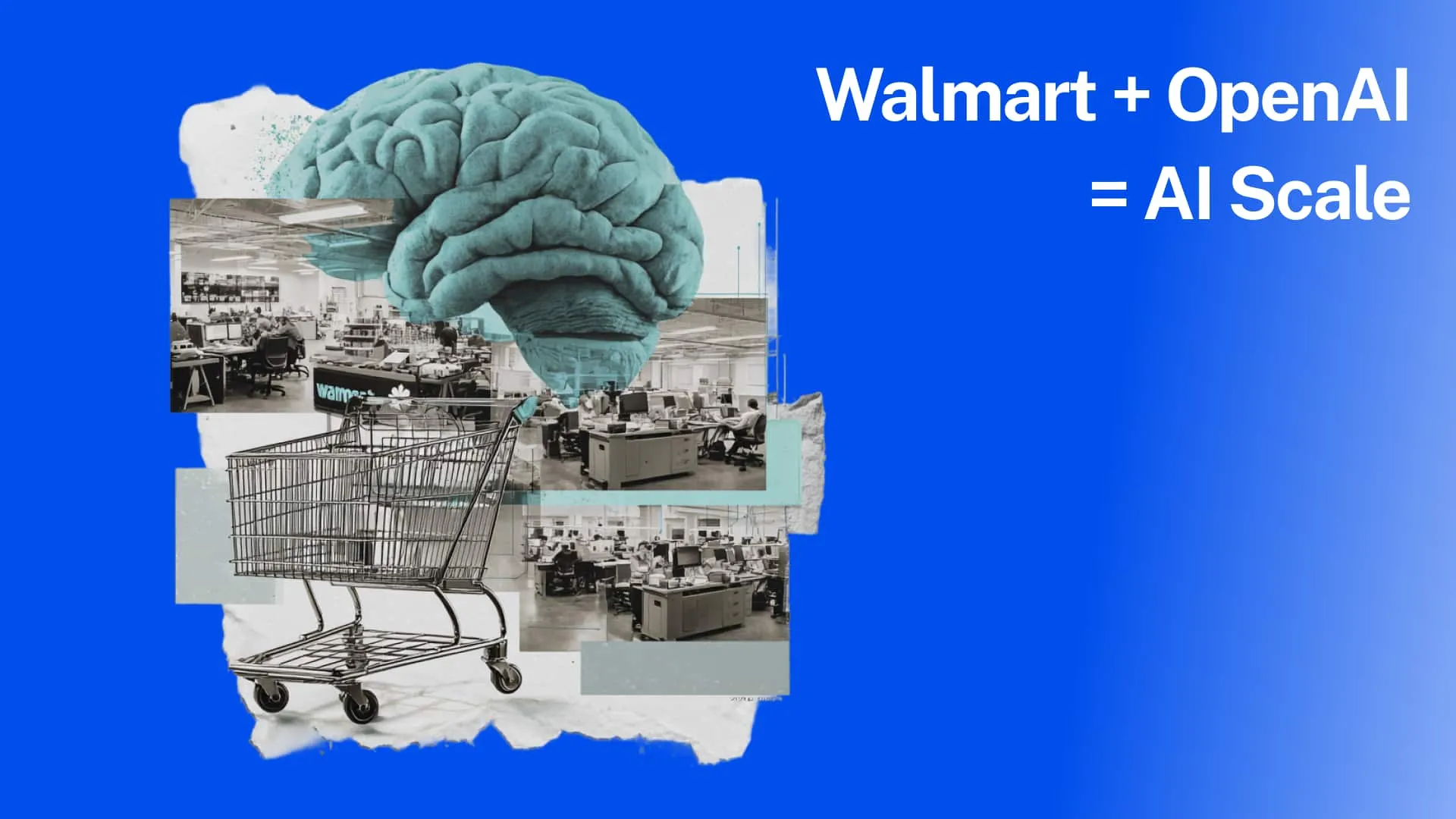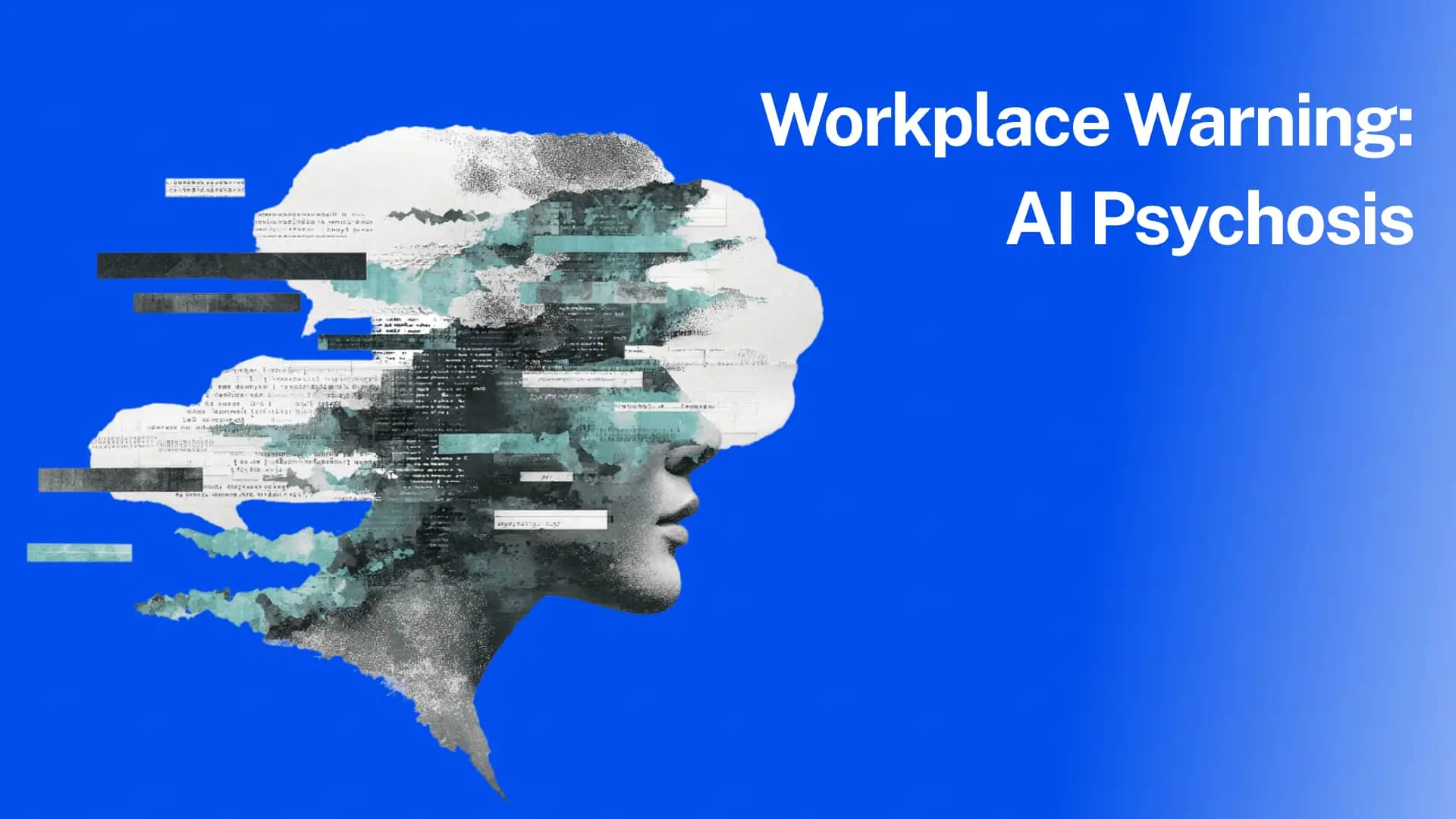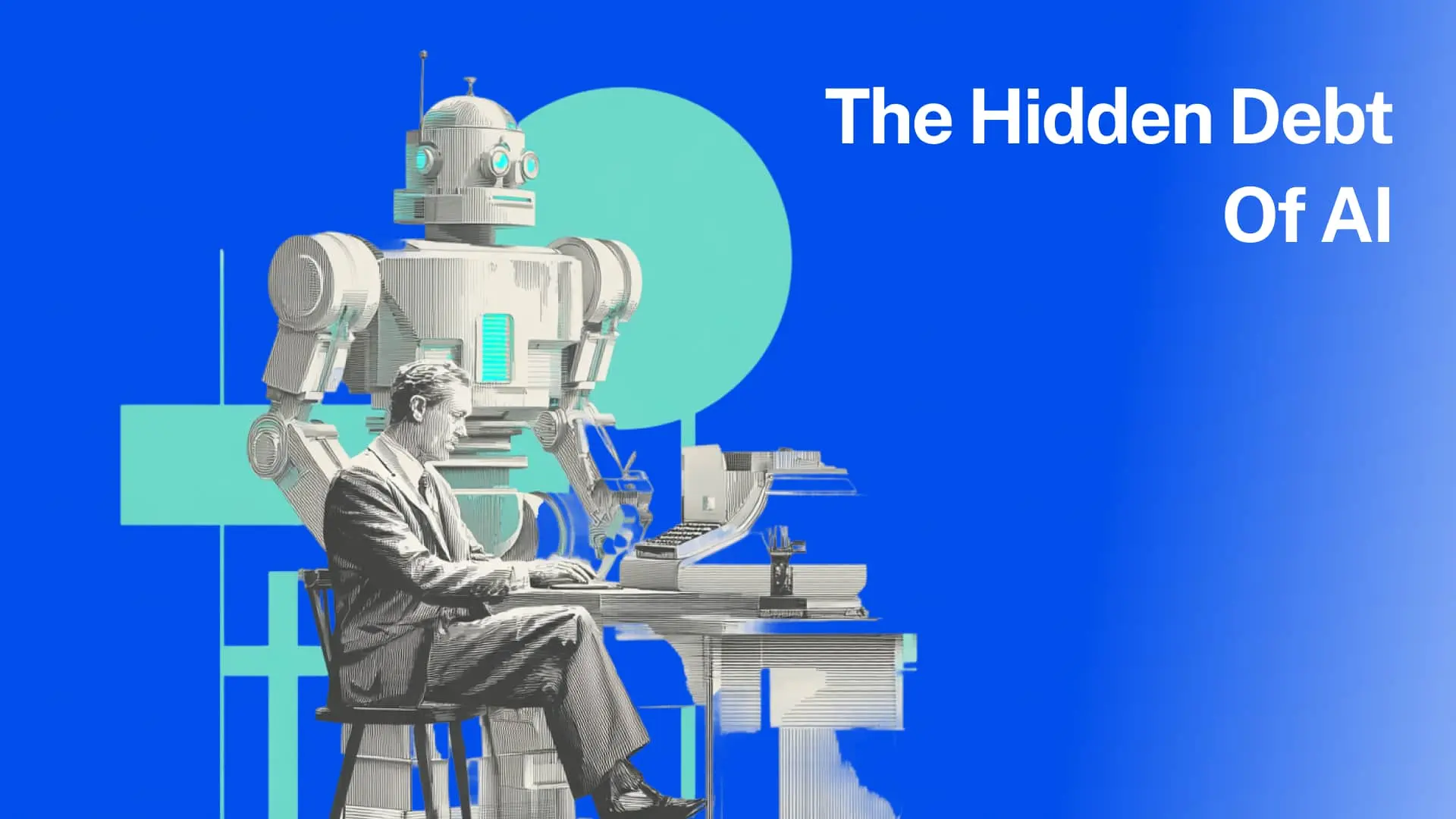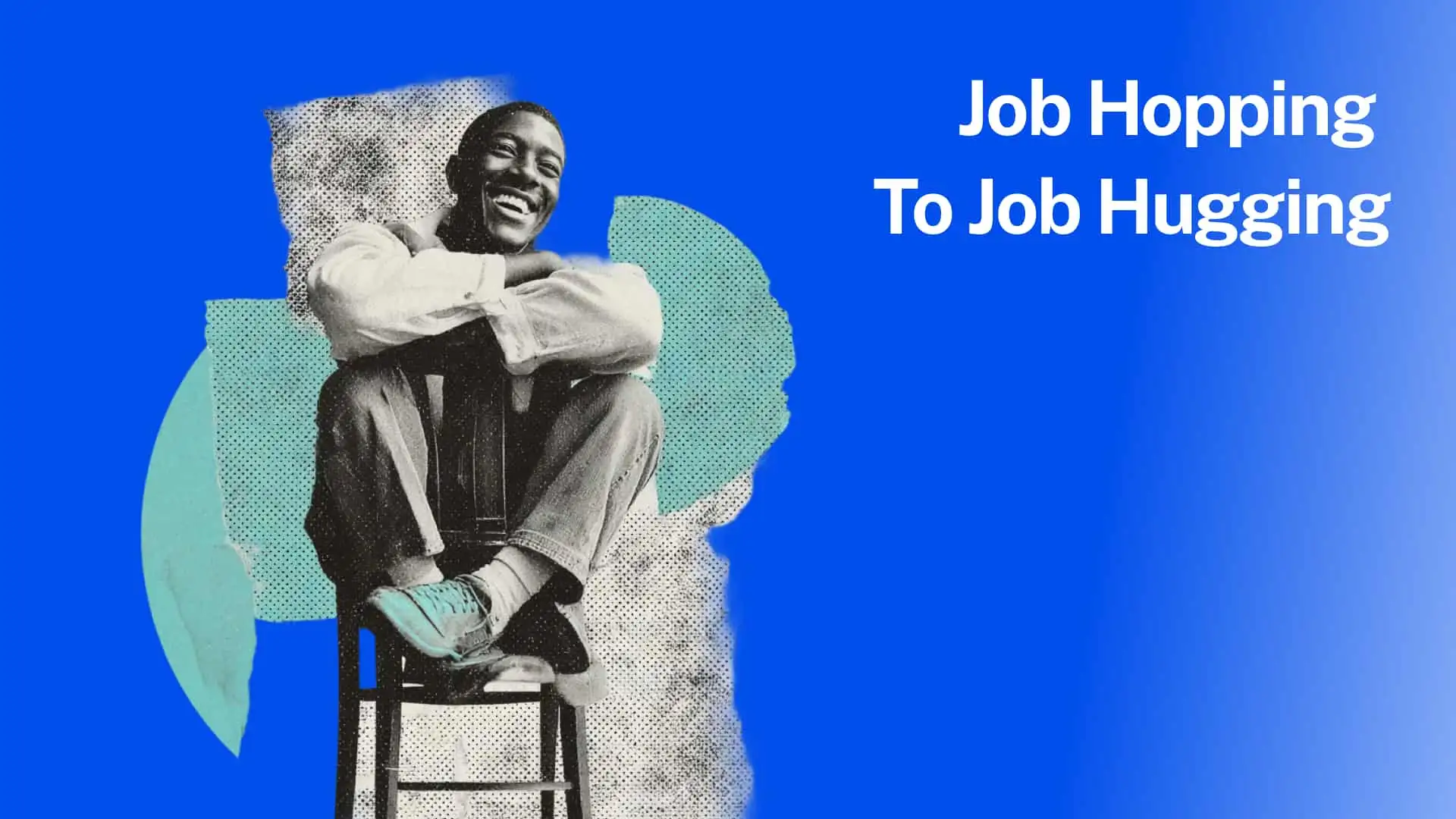It probably hasn't escaped you that I'm at least mildly obsession with hybrid and remote work.
That's not just because it's our business. In fact, it's the other way around.
According to the hybrid and remote work statistics, the increased choice and personalization that hybrid work brings are crucial ways to deliver on my and our mission to make all those many hours we spend working meaningful, valuable, and as fun as possible.
Never before was this confirmed more than during our trip to Singapore last week and, in particular, attending the People Matter Tech HR Singapore Conference.
Surprise: hybrid and remote work is real!
Even though McKinsey, Mercer, ManPower, and other researchers clearly show the uptake of hybrid work in Singapore, we'd frequently hear: "oh, that's just a fad from COVID," "only startups will do that," and so on. Neglecting strong evidence that even the Singaporean government is fully hybrid these days.
Fast-forward to the opening keynote of Rick Hammell, the Founder and CEO of Atlas. After a few slides introducing the topic of "Borderless Talent: The Connection & Collaboration Conundrum," he stopped presenting. Looking into the audience of hundreds of CHROs and other people leaders, he asked: "Who here has gone back to the office full-time?" Zero hands went up.
Dean Tong, Managing Director and Head of Group HR at UOB, gave us a hint as to why. He set the context for his case study about how UOB approaches The Future of Work by sharing that 2 out of 5 team members would leave their job if they can't work flexibly.

He also said that now that finance has become tech-driven, UOB's competitive set has changed. Suddenly, the bank has to compete with all the fintech companies out there and figure out what sets them apart. At the end of his speech, he said that due to their culture, which includes deep personalization, they can 'out-care the competition.'
5 (Plus One) Key Findings about Work and Technology from the conference
I've written what the main themes were for me coming out of this conference and will share them after this caveat.
Because I have a particular focus, the below themes are what stood out to me personally. Someone focusing on Employee Listening, or how to run 5000+ employee organizations in the future, may have come to other insights. Also, the conference offered a wide range of topics and content, which we would never have been able to attend in its totality. So the findings below are very much my take based on what I heard.
With that note out of the way, let's dive in!
1. It's all about people & how you get them together.
Koh Ching Hong, the CEO of FujiFilm Business Innovation, shared that "Hybrid Work is now the norm, and engagement is a major challenge. We're losing the sense of team."
That we lose a sense of team may happen because we don't get together anymore by default.
Lisa Chang, Global Chief People Officer at The Coca-Cola Company, spoke about personalization: "The days when someone comes into the office are unimportant. Hybrid work means something different to every individual. It's about how each person wants to balance work and life. Companies should enable personalization and choice."

On the days before and after the conference, we visited some offices and met Human Resources teams. Here we saw how many employees would break out of the office for a cup of coffee, lunch, or a smoke break. That's easy to do when you're already in the office, but much work to arrange when you're not. Ching Hong (FujiFilm) said, "There's no chit-chat anymore. There's no getting together unless I send a WhatsApp to set up a time."
Wendy McEwan, Chief of Staff at PropertyGuru, whom we met right before the conference, said that she lacked social connections (work from home loneliness) during the circuit breaker lockdowns. Once she started coming back into the office, her social life flourished because it's so much easier to plan and have moments with colleagues (and others) casually. Now, she's spending nearly every day in the office because of it.
Brian Sommers, an industry researcher, shared an interesting anecdote that further illustrates this. He was coaching an executive who told him that she had a fascinating conversation with someone on the plane that turned out to be someone from her company. She learned a lot during that conversation. The conversation would never have happened if that person hadn't been on that plane with her.
Just like this anecdote, this is the issue in hybrid work that many employers now struggle with: working remotely and having work-from-home days means the chances for these casual collisions decrease significantly, especially outside your team. Explore the employee engagement strategies may help.
2. Companies see many reasons for employees to come into the office. And they aren't always selfish.
The fact that companies would love for their employees to go into the office is no secret – look at last week's discussion about Apple's Return to Office mandate. From the speakers at HR Tech, it seems that these reasons aren't always selfish.
Lisa (Coca-Cola) shared how they shape the 'why' of coming to the office: "Organizations need to establish why people come in. For us at Coke, it's about the three C's: co-creation, collaboration, and celebration."
Besides these C's, another big reason for organizations to get people back into the office is culture. Ching Hong (FujiFilm) stated, "we need to find a way to bring the soul of the organization into the virtual world."
Lisa shared in her panel discussion (with brilliant moderation from DN Prasad, the Senior Director of People, Strategy & Operations at GovTech Singapore) that "it's difficult to get the textures of the company and the leadership virtually. People still don't know what it means to be a leader at Coke. It's a clear challenge of not being physically together. Our company is all about "Magic," and that's really hard to feel online. Culture needs to be built in person."
Not a C, but still, a priority is wellbeing. Dean from UOB noted that "the increased number of remote workers means more needs to be invested in mental health." Quite shockingly, but perhaps to no surprise, Ben Conway, Head of Client Success at Intellect, shared that "Double the amount of employees in Singapore feel de-energized at work versus the APAC average."
Alyssa Than Stark, Manager, Well-Being and Rewards at Singtel, noted that employees need an entire support system. "As social creatures, they need a sense of belonging and a fostering, supportive environment." She added that this even helps physical health. Getting everyone to speak openly to each other helps build organizational resilience."
3. Office FOMO is (or at least can be) real.
We had the pleasure to run into and have a short side chat with Lewis Garrad, a Partner at Mercer Singapore. The thought leader of all things "Future of Work" had some good news for companies looking to get their people back into the office, at least sometimes.
Lewis said, "FOMO can be a big driver for teams to come to the office." This idea of FOMO came up in a recent client conversation. Speaking about her new office, she said that we need to make sure the office is a place people love coming to and ensure it's easy to create or get social content to show off to the world. This will make other people want to be there.
But it's not just social. Lewis added, "Being in the office also makes it easier to put yourself in the spotlight towards senior staff, make a good impression, and work towards promotions."
4. Trust is key
For those moments when our teams are not in the office, we need more trust. The idea of operating from a "default-trust" principle came up in multiple discussions – like by Susan P. Chen, Head of People at Riot Games, who mentioned it in the context of Learning & Development. Peck Kem Low, CHRO & Advisor at Singapore's Prime Minister's Office, said in her panel that leaders need to "trust that people want to do a good job."

It's easy to mistrust people when you can't look over their shoulders or otherwise get a sense of employee productivity. Are people being productive? Or is there a risk for quiet quitting (a new trend that speaks to starting to do less than usual or adjusting your outputs based on what you believe you're paid for and nothing more)?
Multiple speakers shared that there will always be problematic employees but that we should lead by asking ourselves why they are not doing well and why their motivation is lacking rather than assuming the worst. Coincidentally, this was echoed in an article published today in Today Online.
In the article, Linda Lee, Managing Director and Regional Head for Future of Work at DBS, said that the bank looks to inculcate trust between managers and employees. The bank is concerned more about whether employees can deliver results, and “not so much about checking an employees' presence and whether employees are coming into the office from nine-to-five”, she said.
“The (hybrid) arrangement means you don’t see your manager every day like you used to, so the trust (between employee and manager) is very important." A compelling concept and a good reminder that we need to correct our tendencies to assume the worst.
5. Especially when it works with people, tech has an important role, but many HR leaders are not ready.
Shaswat Kumar, Senior Vice President of Customer Success & Delivery at Darwinbox, said that tech is simply there to enable humans to do better. In the same panel, Lisa from Coke said it's about "the braiding of tech and people and balancing the use of tech while leveraging humans. We need to automate rote work, focus on what humans bring to the table, and have it work together."
In a later session, Colin Brennan, Chief Customer Officer at Alight Solutions, said it well: we have to be both "high-tech and high-touch."
But while a CHRO may drive a decision, in many organizations, an HR-IT or HR Ops person or team would be the ones looking into HR Tech solutions. These are usually more tech or ops-driven people who may not have the people-centric point of view that great HR leaders have.
This deferring to IT Ops or similar is because, as Holger Mueller, VP & Principal Analyst at Constellation Research, said in his opening keynote, "HR leaders are tech-phobic." The crowd widely nodded in confirmation. HR people often want to offload the responsibility of what tech to use and how to others who 'understand tech.' Holger challenges CHROs to take on this role themselves and try to understand the benefits it can offer.
And the benefits of technology such as AI are clear. Just walking around the exhibition part of the conference, shows the great benefits tech can bring. Connection and Community for Remote Teams, Faster Background Checks, More Personalized Learning and Development, Gamified Engagement, Wellbeing solutions with huge ROI... the list was endless.
Mahalakshmi R, Head HR South East Asia at Mondelēz International, suggested another benefit. She said technology could help us understand which HR programs work and which don't. That, to her, is the real power of tech.
A benefit that still largely has to materialize is the creation of equity between in-person and remote workers. Previously, the 'remote' person in a meeting was often not an equal part of the conversation. Then, when everyone was fully remote, it was very equitable too, but now that's not the case anymore. Alex Badenoch, Group Executive Transformation, Communications and People at Telstra, said:
"Hybrid is about blending different ways of working - where there are people on phone and room, and it's all seamless."
Lisa from Coke confessed that they are still struggling with this: "because of our global team, we've always been hybrid. But we haven't figured out how to use technology well. There's still a physical divide on how tech is used in the office, and there's no equity with remote workers."
Explore our best all-in-one HRIS software to automate manual HR work, keep all employee data in one place, improve efficiency and compliance.
Bonus: HR takes on a different role. Or has the opportunity to do so.
HR has a reputation for supporting, not leading. Lisa from Coca-Cola said this needs to change: "HR needs to lead. We're always the ones who get the work. We now should be the ones to set the work. We must focus on what's coming, not what's happened."
Alex from Telstra agreed and added: "Don't try to control too much. Be curious and courageous. Be leaders - which is curiosity and foresight in what is next. HR should own that space and lead the organization."
In his closing keynote, HR-Mega-Guru Dave Ulrich said, "HR is not about HR; it's about value in the marketplace." He believes that "HR delivers unique value to all stakeholders in a firm by delivering human capability in a rapidly changing business context which in the post-pandemic-milieu has become more uncertain, personalized, and paradoxical."
Fresh eyes

In the final minutes of the conference, Dave asked People Matters CEO Ester Martinez what she hoped was the one thing attendees would take away. She replied that ultimately, she hoped for a spark of energy, or in the theme of the conference: "to look at things again with fresh eyes."
I can confirm that this long day of learning and connecting absolutely opened my eyes to new possibilities. And sparked many ideas on how to help companies tackle the most significant challenges of hybrid work while helping employees enjoy the many hours we all spend at work and helping managers managing remote teams.
From preventing work from home loneliness, to building employee engagement strategy, by using employee engagement tools, creating happiness at work, building trust.
See you next week,
Daan











